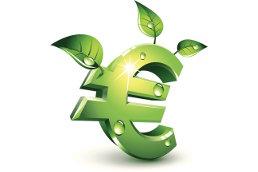
Opportunities and challenges for financing the low-carbon economy, through both public and private channels, were discussed at an EU side event at the UN climate conference (COP23) in Bonn on Tuesday.
At the event, held in the EU Pavilion at COP23, high-level speakers gave insights and recommendations on how low-carbon investments could be accelerated by public and private sector actors and how to establish and maintain trust in low-carbon markets.
The EU and its Member States are scaling up investment in the low-carbon economy, to help ensure that the EU will meet its ambitious climate targets while creating jobs and growth opportunities. A number of EU-level funding programmes such as Horizon 2020 and NER 300, as well as national funding schemes, are used to this effect.
European Commissioner for Climate Action and Energy Miguel Arias Cañete said: "The EU supports the roll-out of low-emission technologies to modernise the European economy. It is important for the EU that public funds do not crowd out private finance – on the contrary, EU funds should mobilise private finance that would not have been used otherwise.
He added: "The EU also dedicates significant funding to the development of low-carbon innovation, because we believe that governments must share the risks with companies. Only last week, the European Parliament and Council agreed on the creation of a new Innovation Fund to support low-carbon innovation, in areas such as energy-intensive industry, renewable energy and energy storage."
The EU and Member States also provide significant financial assistance to developing countries. Together, they provided climate finance totalling €20.2 billion last year, an increase of more than 10% from 2015.
Read more:
Details
- Publication date
- 15 November 2017
- Author
- Directorate-General for Climate Action
